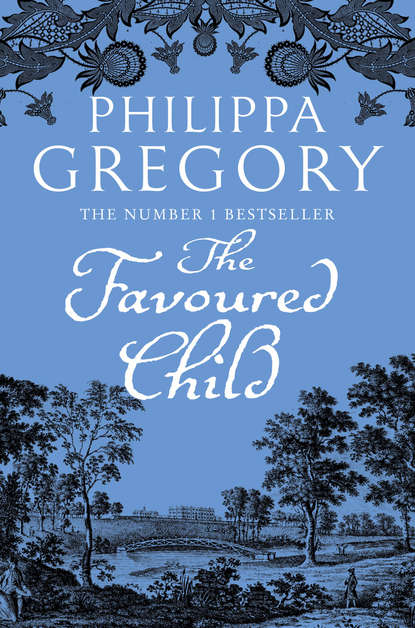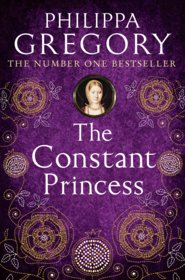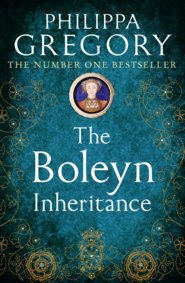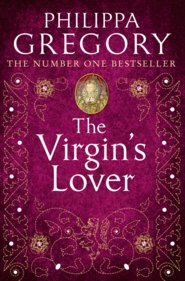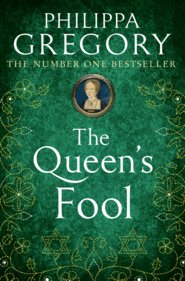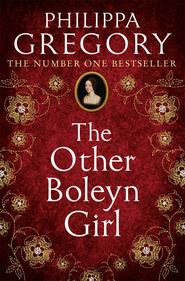По всем вопросам обращайтесь на: info@litportal.ru
(©) 2003-2025.
✖
The Favoured Child
Настройки чтения
Размер шрифта
Высота строк
Поля
My mama dropped her sewing in her lap and put her hand down to my head and turned my cheek so that I looked up and met her eyes. ‘Listen, Julia,’ she said earnestly, ‘I love him dearly and so do you. But we should not let our affections blind us to nature. Richard has a lovely voice, but he plays at music as if it were a toy. He is skilled in drawing, but he takes it up and puts it down as a hobby. He is like his uncle, your own papa, who had many fine talents but lacked the greatest gift of concentration. Richard would never work and struggle and strive in the way that a great musician has to do. Richard likes things to be easy for him. Of the two of you, it is you who works hardest at music – you practise longer hours than he does so that you can accompany him. If Richard had the dedication of a true musician, he would sing all the time – not when it suits him.’
I scanned her face, considering what she had said, and hearing also an old judgement made years ago on my papa, the man who liked to play at farming while his sister ran the land.
Then the door opened and Richard came in, his eyes bright blue and his cheeks rosy with the praise he had received in the kitchen. ‘Did you hear me singing even in here?’ he asked. ‘Stride said you did. Yet the kitchen door and the baize door were tight shut. Fancy!’
‘Yes, we did,’ Mama said and she smiled kindly at his bright face. ‘It was lovely singing, Richard, I should like to hear it again after dinner. But now go and wash your hands, my darling, while I read this note from Julia’s grandpapa.’
We went from the room together, and not until dinner did she tell us what the note said, and then it was the last thing we expected.
‘I have had a note from Havering,’ she said while Stride served the thin soup. ‘Lord Havering writes that he has a horse which might suit the two of you.’
Richard’s head jerked up from his plate, his eyes bright on her face. She smiled at him. ‘I said we would all go over tomorrow so that you could try its paces,’ she said. ‘You may ride in your ordinary boots, Richard.’
‘Oh, yes,’ said Richard. ‘Oh, yes.’
‘But we have no habit for you, Julia,’ Mama said, turning to me. ‘I dare say you would have liked to learn, but I cannot see how to contrive it.’
‘It is all right, Mama,’ I said, my voice strained. ‘It doesn’t matter. Richard wants to ride so much more than I do. He can learn now, and perhaps I will learn later.’
I had a warm smile from my mama for that little piece of generosity, but Richard scarcely noticed it.
‘Is it a mare or a gelding, Aunt Celia?’ he asked. ‘Did Lord Havering say how old it is?’
‘No,’ my mother laughed. ‘I know no more than I have told you. You will have to wait until tomorrow. But I do know that my step-papa is a great judge of horses. I think you may be certain that it is a good animal.’
‘Yes,’ Richard nodded. ‘I’ll wager it’s a mare.’
‘Perhaps,’ Mama said and nodded to Stride to clear the dishes, and then she turned to me and asked me what I had been doing in the afternoon while she had been writing her letters.
While I spoke, I could see Richard fidgeting like a cur with fleas, and all through dinner he could scarce sit still. I was not at all surprised when he drew me aside while Mama went to take tea in the parlour and said, ‘Julia, I cannot wait until tomorrow. I have to go and see the horse now. Come with me! We can be back by supper-time.’
‘Mama said …’ I started.
‘Mama said …’ he echoed cruelly. ‘I am going, are you going to come too? Or stay at home?’
I went. It was a pattern I could not break, like a phrase of music which you hum even when you do not know you are singing. When Richard called to me, I went. I always went.
‘We should tell Mama,’ I said, hanging back. ‘She may ask for me.’
‘Tell her what you like,’ Richard said carelessly, shrugging on his jacket and heading for the door to the kitchen.
‘Wait for me!’ I said, but the door was already swinging and I only paused to catch up a shawl and run after him.
Stride was sitting at the kitchen table. He looked at Richard without approval. ‘Where do you think you’re going, Master Richard?’ he asked. The remains of his dinner were before him, a half-pint of small beer beside the plate. Mrs Gough had Mama’s tea-tray laid and a kettle on the boil.
‘We are taking the air,’ Richard said grandly. ‘There is no need to open the door for us.’ And he swept towards the door with as good an imitation of Grandpapa Havering’s arrogance as an eleven-year-old boy could manage.
I followed in his wake and peeped a look at Stride as I went. He shook his head reprovingly at me, but he said nothing.
Outside, I forgot I had ever hesitated. The magic of the land caught me. I could feel it take me; anyone watching my face could have seen it take me.
My mama once commissioned an artist – a poor travelling painter – to make a sketch of us when I was just seven and Richard was six years old. She wanted a parlour picture: the two of us seated on a blue velvet sofa in the drawing-room of the Dower House, the only piece of respectable furniture in the only properly furnished room. I can imagine the picture she saw in her mind. The two little children wide-eyed and formal, seated side by side. And even at the age of seven, as a little girl, I should have liked to have pleased my mama by posing for a picture like that.
But the painter was a man with seeing eyes, and before he made his sketch, he asked Richard and me to show him a little of the estate. He walked with us in the woods of Wideacre and he saw how we could move as silently as deer under the trees so that the birds stayed in the branches even when we passed directly beneath them. And he felt that we trod the land as a living thing. And he sensed that Richard and the land and I belonged together in some unbreakable triangle of need and love and longing.
So he made his picture in the woods of Wideacre, and Mama had it framed and hung on the chimney-breast of the Dower House drawing-room. It showed me, just a little girl in a sprigged muslin dress tied with a blue sash, with my hat off and my hair tumbling down, seated beneath one of the great flowering chestnut trees of Wideacre. It was May and the tree was in bloom with thick candles of red flowers, and all around me were drifts of petals as scarlet as blood; the sunlight on my light-brown hair turned it golden. My cousin Richard was standing behind me, looking down on me, posed like a little hero, half an eye on the effect he was creating. But my eyes were hazy grey and I was looking out of the picture. Away, past the painter, out of the frame of the picture, out of the little world of childhood, away from the safety of our little home.
Richard stood like a small cavalier for the picture, because he had the knack of being what people desired. Mama wanted a formal picture, and there Richard was, behind me, one little fist on his hip, his shoulders squared. Unlike him, I looked fey and wild and dreamy in the picture, because I was seated under a blood-red chestnut tree. Wideacre brought out the wildness in me and I could not help myself.
I heard a humming in my head and I longed to be running free on the land. When I had to stay indoors with my sampler or read aloud to my mama, my book or my work would fall into my lap and I would rest my head against the cold glass of the window and look away. I looked away from my home, away from the little house, away from the penny-pinching shabby gentility and the worry, from the false appearances and the cut-down gowns. I looked away to Wideacre. And I wished that I could own and run the land.
It distressed my mama. She saw it in me early on, and she tried with her love and her persevering gentle discipline to make me into a child in her own image. A child who could sit still, who could stay in clean clothes, who could sit in a small room without fretting for the smell of the South Downs’ wind in her face.
She failed. When the ground was covered with the thin white of a hoar-frost, or when the spring winds were blowing, I could not stay indoors, I had to go. I had to go, but the fine lines of worry around my mama’s eyes made me pause.
‘I know you long to be out, Julia,’ she said to me gently. ‘But young ladies cannot always do exactly as they wish. There is your sampler, which you have not touched this week, and some darning to be done as well. You may have a little walk this afternoon.’
‘It is not a walk that I want, Mama,’ I replied, forced into words by the sound of birdsong, so temptingly close in the woods outside the closed window. ‘I need to be out there, out on the land. The spring is here and I have hardly seen it this year. I have only been in the garden and the woods. But there is the common, and the downs. I have not seen the bracken coming out, nor the spring flowers on the downs.’ Then I stopped, for I saw her looking at me oddly as if she could not understand me, looking at me sadly as if my love for my home somehow distressed her.
‘I know,’ she had said gently and put her hand on my skinny shoulder. ‘I know that you love the land. But it is a wasted love, Julia. You would do better to love God and love those that love you. Loving land brings little pleasure and can bring much pain.’
I nodded, and tried to look obedient. I lowered my eyes so that she should not be hurt by my immediate contradiction of her good sense. I could no more help loving the land than I could help loving my cousin Richard. I could never be free of my love for them. I would never want to be free of my love for them.
But I knew that my mama was right about wasted love! When I saw the cornfields of Wideacre self-seeded and the meadow-lands grown high since there was no stock to graze them and no haymaking, I knew then that a love for the land without money and good sense behind it was worthless love indeed. And when Richard tormented me to tears and back again, I felt that my love for him was wasted too, for it brought more pain than pleasure.
But there was no other land but Wideacre.
And there was no one else but Richard.
So when Richard called me, I went. Even when I knew I should not. And he was so certain of this, so certain of my love for him, that he could trot down the drive without even troubling to look back, certain that he would hear my boots pattering along behind him.
It was a long way to Havering Hall, even going cross-country and splashing through the Fenny at the boundary of the two estates. When we arrived at the stables, breathless and sweating from our run, Lord Havering was looking over his horses before going to his supper.
‘Good Lord,’ he said in his rich voice, warm as port, thick as cigar smoke. ‘Look what the wind has blown our way, Dench.’
The Havering chief groom looked over the half-door of the loose box and smiled to see us. ‘Come to see the new mare?’ he asked Richard softly in his Sussex drawl.
‘Yes, if I may,’ Richard said, beaming. You would have thought him a boy utterly incapable of disobedience. ‘Mama told me of her at dinner, Lord Havering, and I am ashamed to say I could not wait until tomorrow.’
My grandpapa chuckled indulgently at his favourite, Richard. ‘Bring her out,’ he said to Dench and bent down to me. ‘And you? Little Miss Julia? Came in Richard’s shadow as usual, did you?’
I blushed and said nothing. I lacked Richard’s ease with adults. I wanted to explain that I too had come because I wanted to see the horse. I had wanted the hard steady run from one side of the estate to the other. And I wanted to tell my grandpapa that Richard was not to be blamed for my coming. But not one of these things did I say. I just shuffled my feet and looked silly, and kept my eyes down.
Dench brought the mare clattering on the cobbles out of her stable at the end of the row. She was a lovely animal, a rich russet chestnut with a mane and tail of a darker shade of unpolished copper. She had a white blaze down her nose and deep brown eyes. Dench had a firm hand on her head collar, but she stood gently beside him and looked at us.
Her eyes, as warm as melted chocolate, seemed to invite me to her side and, without waiting for Richard to approach her, I went straight past my grandfather, straight past Richard, and put my hand up to her.
She whickered softly as I came close and bent her head to nuzzle at my pocket. I had nothing for her, but Dench slipped me a handful of oats out of his own capacious breeches. Her lips on my flattened hand were discriminating, gentle, as if she were taking care not to nip my thin fingers. I reached up a shy hand and rubbed her behind the ears, where mares nuzzle their foals. She blew out of her nostrils at my touch and sniffed at the front of my dress. Without thinking what I was doing, I dropped my face down and sniffed rapturously at her damp oat-smelling breath, and blew gently back. It was love at first sight for me.





